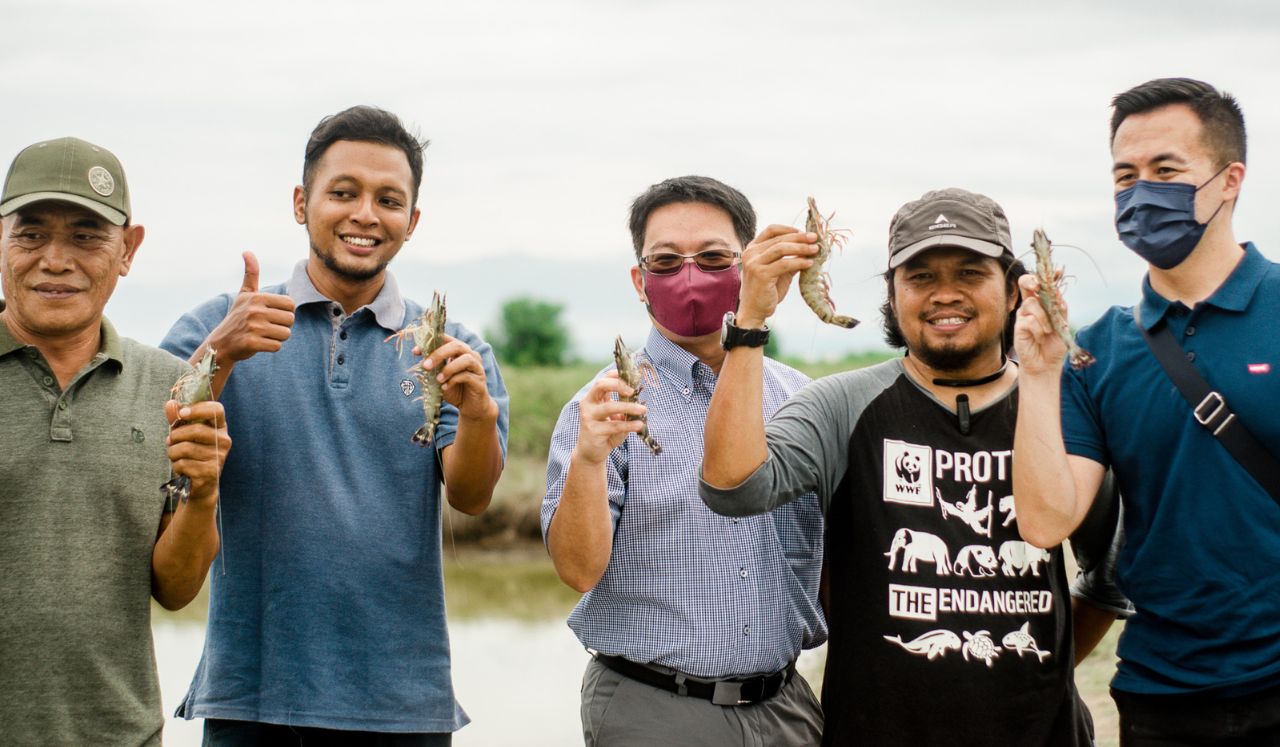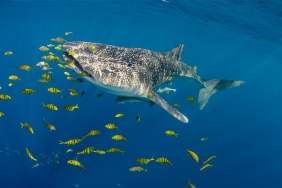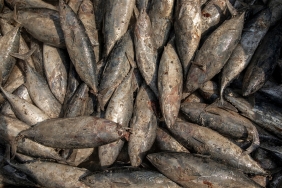COOPERATION OF TIGER SHRIMP FARMING ACTIVISTS IN KAB. PINRANG IMPLEMENT AIP
By Agis Riyani and Idham Malik
WWF-Indonesia has been involved in the tiger shrimp aquaculture improvement program (AIP) in Pinrang District since mid-2013 through intense coordination with shrimp farming leaders in Suppa District. In addition, to support responsible tiger shrimp aquaculture in Pinrang District, various coordination and approaches were also conducted with the local Marine and Fisheries Service, local fisheries extension workers, and tiger shrimp farmer groups located in the minapolitan area. In September 2014, WWF-Indonesia was integrated into the Coordinating Body for the Management of the Lowita Minapolitan Area (Lotangsalo, Wiringtasi, and Tasiwali'e) of Pinrang District.
Pinrang Regency itself was chosen as one of the locations to improve aquaculture because tiger shrimp production is always increasing and productivity continues to persist. The regency, which is located 185 kilometers north of Makassar and has 93 km of coastline, is also one of the largest tiger shrimp suppliers in South Sulawesi. The tiger shrimp production is supplied from ponds in five sub-districts, namely Suppa (2,203 ha), Lasinrang (1,5675 ha), Mattirosompe (4,131 ha), Cempa (2,341 ha), Duampanua (5,101 ha), and Lembang (339 ha).
On December 20-21, 2014, a training on BMP (Better Management Practices) of Wind Shrimp Cultivation was conducted for farmers inside and outside the minapolitan area of Pinrang Regency. The training involved farmers from Tasiwali'e Village, Wiringtasi Village, Lanrisang Village for Suppa Sub-district and Patobong Village from Mattirosompe Sub-district, as well as several Fisheries Field Extension Officers (PPL) from Suppa Sub-district. The first day of the training was filled with the provision of Shrimp Aquaculture BMP material and material on the environment and application of RICA Windu Probiotics in the classroom. Then the second day was continued with field visits, starting with a visit to the tiger shrimp hatchery, discussions with farmers at the location of the culture pond pronhima suppa, and finally to the location of the RICA probiotic culture and the location of the RICA probiotic application pond which was closed with a discussion with farmers who have utilized the probiotics to improve pond water quality. The result of the two-day training is that participants understand and will implement the BMP guidelines for tiger shrimp farming, and are interested in developing natural feed Pronhima Suppa and RICA probiotics to increase tiger shrimp production and improve the pond water environment.
Prior to this training, WWF-Indonesia together with DKP Pinrang District had also held a BMP socialization to farmers attended by farmers, DKP staff, and Fisheries PPLs in March 2014 and continued with a special tiger shrimp farming BMP training for Fisheries PPLs in Pinrang District and South Sulawesi Province in June 2014. The training aimed to introduce tiger shrimp farming practices that comply with BMPs and survey methods to analyze gaps between BMPs and ASC-Shrimp standards and actual conditions in the field. The role of fisheries extension officers is very important here as they are at the forefront of socializing responsible farming practices, as they are the ones who often interact with farmers.





